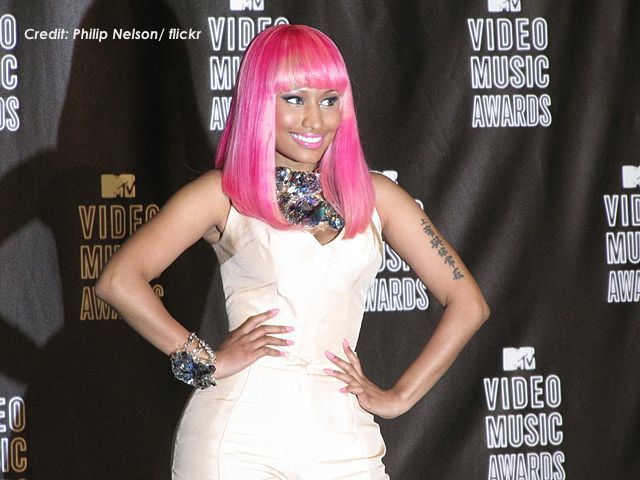Guest post by Maria Jackson. You can read her last guest essay here.
I have been a fan of Janelle Monáe since 2008’s Metropolis: The Chase Suite. Hearing her music was like hearing my inner most thoughts, desires, and interests manifest. Her electric, bouncing, soulful, sci-fi sound paired with strong, storytelling lyrics of a quest for freedom had me hooked. Everything Monáe has presented and produced has been created thoughtfully and with a clear-eyed purpose.
 Monáe has been hyper aware of her image and how others perceive her ever since she came onto the scene over seven years ago. Preferring to be covered up than baring skin or being “revealing” was choice dictated not only by style, but also by conscious and personal comfort. Her iconic look, bouncy pompadoured coif with a black and white tuxedo (although her wardrobe has expanded and her hair has been down recently) is a uniform in tribute not only to her parents, but also to working class people:
Monáe has been hyper aware of her image and how others perceive her ever since she came onto the scene over seven years ago. Preferring to be covered up than baring skin or being “revealing” was choice dictated not only by style, but also by conscious and personal comfort. Her iconic look, bouncy pompadoured coif with a black and white tuxedo (although her wardrobe has expanded and her hair has been down recently) is a uniform in tribute not only to her parents, but also to working class people:
“When I started my musical career I was a maid, I used to clean houses and the girls I used to clean houses with used to always beg me to sing while we cleaned. I lived in a boarding house with five other girls and I would sell my $5 CD out of my room. My mother was a proud janitor, my step-father who raised me worked at the post office, and my father was a trash man. They all wore a uniform and that’s why I wear my uniform to honor them. I have work to do. I have people to uplift. I have people to inspire. And today I wear my uniform proudly.”
Beginning with narrative Cindi Mayweather vs. The Wolfmasters, much of Monáe’s musical catalogue tells the story of a future society where androids are sold at auction for the pleasure of their buyers. Specifically androids are the “others” whose independence and freedom are feared by the very same who have created and own them.
In Cindi’s musical sojourn to be free, Monáe references negro spirituals and melds them with the origins of modern sci-fi, citing the influences of Philip K. Dick and the 1927 silent film, Metropolis. Fusing retro fashions of suspenders and the pompadour, while blending sci-fi vision with the frustration and joy entangled in the current realities of living as marginalized person in the U.S., Monáe’s artistry has always been about the very revolutionary act of bringing the outsiders to the forefront of their own stories about love, freedom, humanity, and self-acceptance.
These womanist themes of living at the intersections have continued through each album reaching a commercial and pop culture peek in her 2013 release of Q.U.E.E.N featuring Erykah Badu. Q.U.E.E.N, which stands for Queer, Untouchables, Emigrants, Excommunicated, Negroid, tackles themes of respectability politics, morality, black femininity, white supremacy, inequality and poverty. So, when she and the other Wondaland artists spoke up about police brutality during their performance on the TODAY Show (and were cut off), no one should have been surprised.
Earlier that day the Wondaland artists released Hell You Talmbout (a rework or sequel to the Electric Lady bonus track of the same name) a percussive protest jam made for marching where the names of men, women, boys, and girls killed by police brutality are shouted. Monáe described the meaning behind the song her Instagram:
“This song is a vessel. It carries the unbearable anguish of millions. We recorded it to channel the pain, fear, and trauma caused by the ongoing slaughter of our brothers and sisters. We recorded it to challenge the indifference, disregard, and negligence of all who remain quiet about this issue. Silence is our enemy. Sound is our weapon. They say a question lives forever until it gets the answer it deserves… Won’t you say their names?”
The only way you could be unaware of Monáe’s views on Black life in America is to be wholly ignorant of her body of work.
Guest essayist Maria Jackson is a thirty-something, 4th generation Georgia Peach who writes for Shakefire.com and can be heard trading opinions and laughter on the Nerdgasm Noire podcast, with Arsenal For Democracy columnist De Ana and others. Co-owner and full time fatshionista for luvfattax.com.



